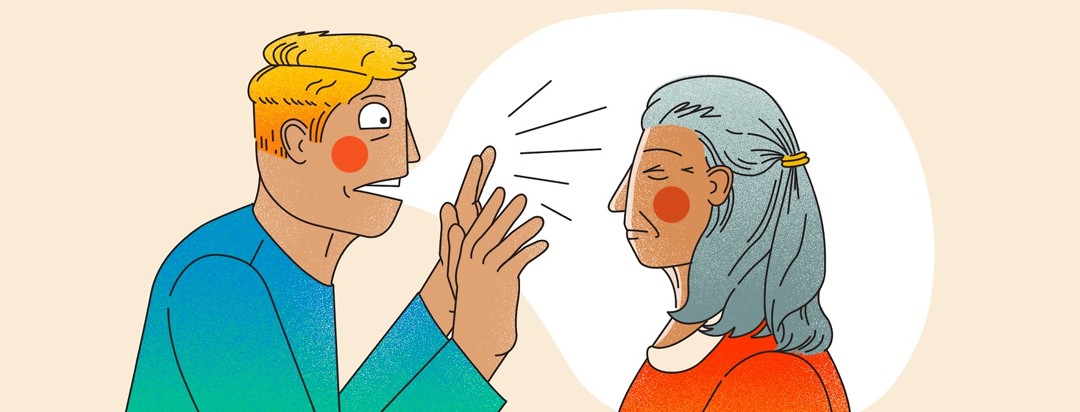How Are You Treated Differently Since Diagnosis?
Receiving a life-changing diagnosis, like Alzheimer's, can be incredibly challenging not only for those receiving the diagnosis but also for their loved ones. Just as you may be adjusting to a new normal or new reality, so are those who care the most about you. Despite best intentions, loved ones may not know what you need or how to process this news and may start treating you differently, for better or for worse. We took a closer look at how individual's with Alzheimer's are treated differently after diagnosis.
Being treated differently after an Alzheimer's diagnosis
We recently conducted our 2019 Alzheimer's In America survey to understand many aspects of life with Alzheimer's, or life caring for someone with Alzheimer's. We received some powerful responses regarding life after diagnosis.
Roughly 58 percent of participants said they are treated differently by a spouse or partner, while 47 percent said they are treated differently by a co-worker, colleague, or supervisor. About 46 percent said they are treated differently by their friends, while 45 percent said they experienced a change in treatment from their children. Similarly, 45 percent said they are treated differently by their acquaintances and 40 percent said their parents treat them differently.
These numbers indicate that many with Alzheimer’s experience changes in treatment from a variety of different sources. Some common themes in the way others treat someone differently with Alzheimer's are below.
Being treated like a child
"Alienated... People treat me like a child or ignore me."
Some respondents reported feeling as though others treated them more like a child after their diagnosis. Being talked down to, underestimated, or ignored may be experienced by those with the condition.
Having others change the way they communicate
"They talk slower and sometimes louder. They think I'm deaf, lol."
Similar to being treated like a child, some may experience changes in the way they are talked to by others. This may include slowing down speech or others raising their volume when talking to someone diagnosed with the condition. This may be due to misperceptions of what Alzheimer’s is, and how it might affect someone diagnosed. For example, thinking someone with Alzheimer's may be hard of hearing, even if they are not.
Not being included in plans or conversations
"Friends not around as much. Not included in plans of friends. Family not in touch as frequently as in the past."
Some respondents felt as though they were not being included in plans or conversations. This may be because others are unclear what someone with Alzheimer's may be able to do - pulling away from someone with a chronic condition. Both can be driven by confusion and misunderstandings about what life with Alzheimer's actually looks like.
General changes in treatment
"They actually worry about me. They want to take care of me and get me back to where I was. I lost my memory and people treat me quite a bit differently."
In addition to the other specific changes in treatment listed, some respondents mentioned experiencing more general changes in the way others viewed or interacted with them. Increased feelings of worry or like they need to provide care or protect their loved one with Alzheimer's may arise. While these may be well-intentioned, they might not be what is needed, especially early on.
These responses make it clear: those with Alzheimer's often experience differences in the way they are treated by those around them. What can be done to combat unwanted changes?
How to approach being treated differently
Although every relationship is different, many of these changes are rooted in fear or misunderstandings. It is important to remember that just as you may be adjusting to life with an Alzheimer's diagnosis, so are those around you. Having open and honest conversations with those around you about what you are going through and what you need may be helpful. This way loved ones are not guessing what limitations you have (or might not have).
Outlining the ways you want to be treated as early as possible may help clear up any misconceptions or fears in those closest to you. Openly telling those you care about what you need and the way you want to be treated may help them recognize and stop behaviors before they start. It may be that they are just unsure how to move forward on this journey with you.
What about you?
Have you been treated differently since your diagnosis? What steps have you taken to try to adjust the way others talk or behave around you? Tell us about your experience in the comments below, or share your story with the community.
Interested in more on progression and support through Alzheimer's? Check out Alzheimer's Progression: Support Through the Stages.
Community Poll
Have you had difficulty keeping your loved one hydrated?

Join the conversation